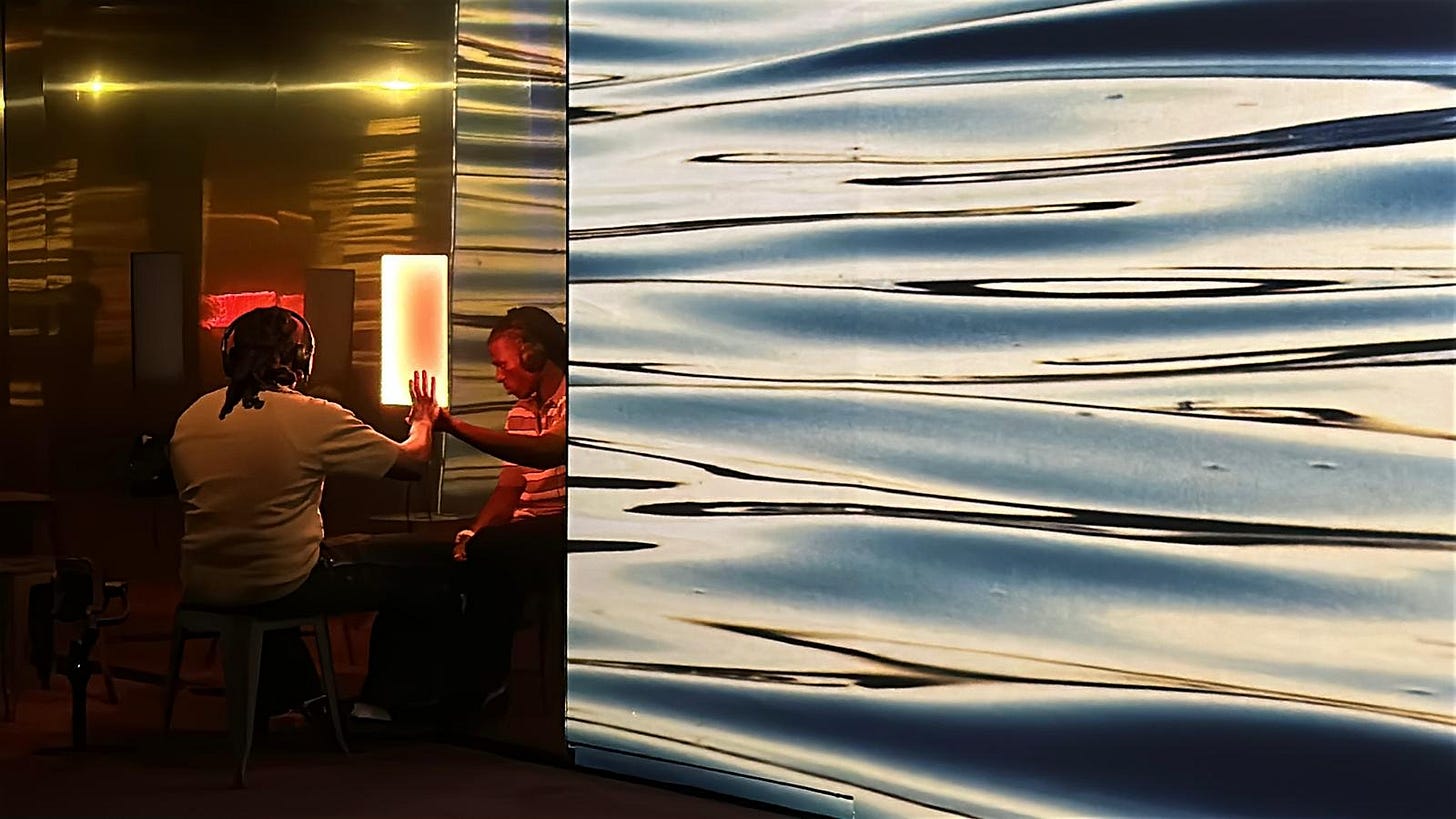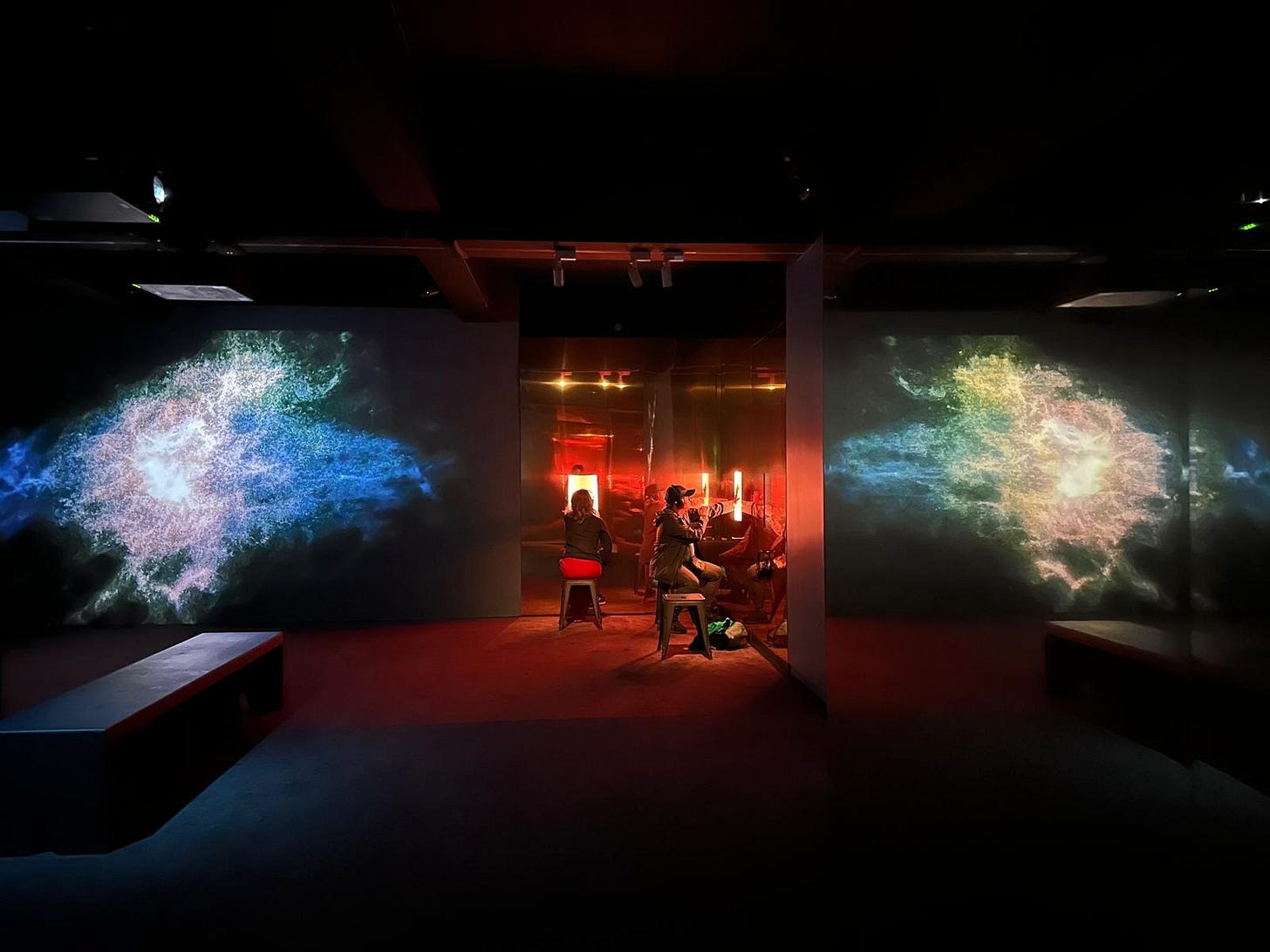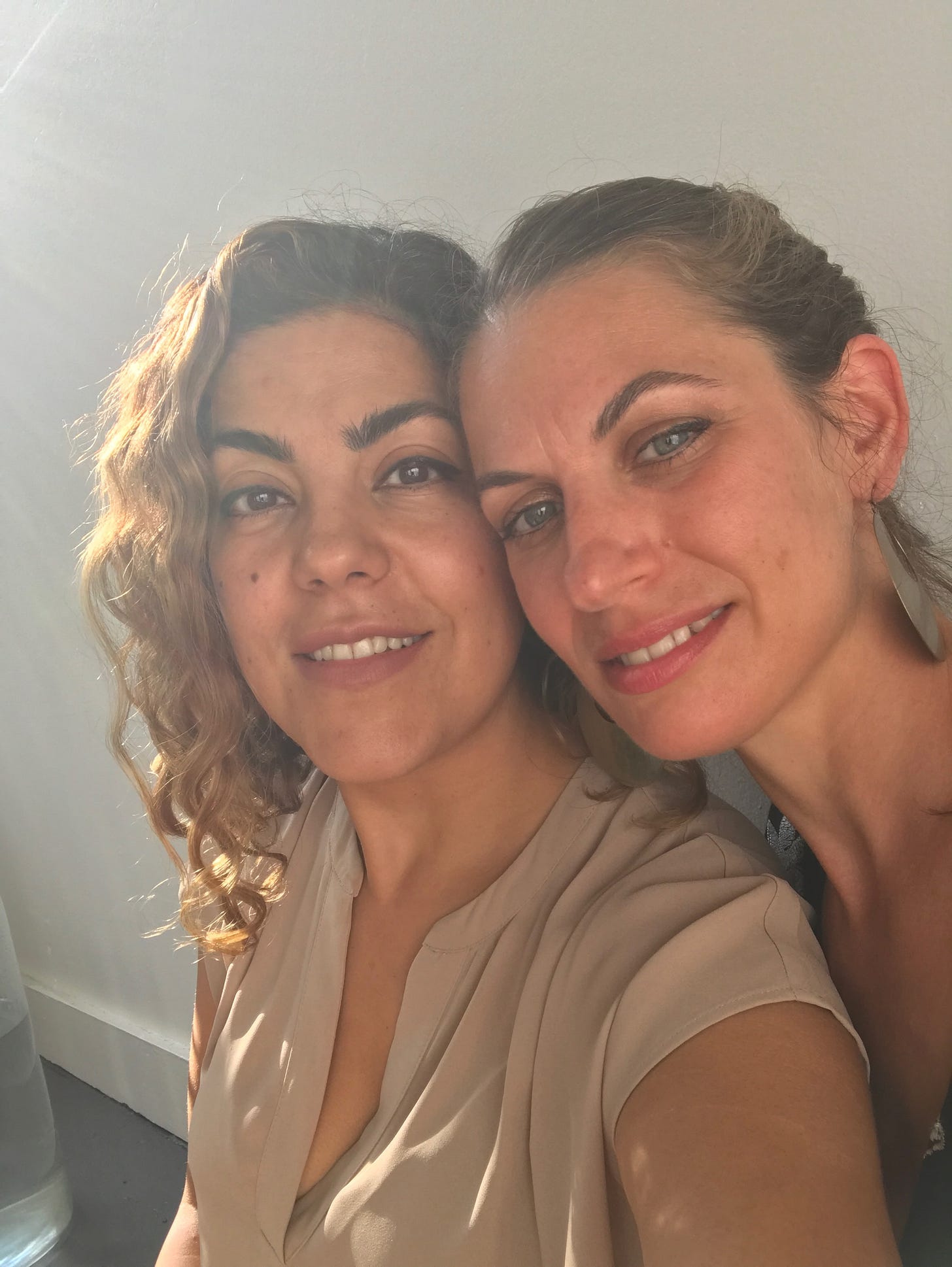I want to introduce you all to my dear friend, my longtime collaborator and art love, Rashin Fahandej.
Rashin and I met when we were both living in Boston in the early 2000’s. But we have been making art together long before that, in shared dreams and imaginative realms that we have traveled together in deep time, long before our bodies arrived in that New England city, before people in our shared community and the instructors at our neighboring schools said to each of us, again and again, have you seen the work of this woman, I think there is something about the two of you…
From 2007-2011, we made a series of video and sound installations together that we titled 160 Years of Pressure:
1848: an Iranian woman in Badasht, 95 miles north of Tehran, by the name of Tahirih, unveiled her face in a group of men in a proclamation of undeniable equality.
1848: a group of American women in the United States, Lucretia Mott, Elizabeth Cady Stanton, Mary Ann M’Clintock, Martha Coffin Wright, and Jane Hunt met for tea in Seneca Falls, 270 miles north of New York, and began the women’s suffrage movement.
About our collaborative partnership, we wrote, back in 2007:
Born in Iran and the United States, our artistic collaboration is a sociopolitical position. It embodies our purpose in creating artworks: physically bringing together bodies, cultures, and artistic mediums to create a moment of encounter where the preconceptions we hold about each other and ourselves collapse.
Rashin and I made so much work together during our graduate school years (She was making film at the San Francisco Art Institute, I was making sound art at the University of British Columbia) that I forgot how to think without her. Through making art together, we did indeed ourselves collapse. I grew another tongue to mouth all the words that fell between our languages. And when Rashin went back to Iran to shoot our film Panj-ab, Waters Meet, she looked for a body that resembled mine.
Jumping ahead 10 years, in 2017, Rashin asked me to work on a project of hers about the effects of mass incarceration on fatherhood in the United States. A Father’s Lullaby is a multi-platform, collaborative storytelling work that prioritizes access, equity, and shared authorship, redefining who tells stories and how they are told. The project was already growing at this time, incubated through the Boston Mayor’s Office Artist-in-Residence (AIR) program (2015 and 2017) and a multi-year research fellowship with the MIT Open Documentary Lab.
Rashin had recorded hundreds of hours of conversations with recently incarcerated fathers, inviting them to sing lullabies that had been sung to them in childhood, or that they sung to their children before they were separated by the US penal system. I spent an entire spring into summer listening, walking, sensing into synchronicities and syncopations, into the music between the stories, into a pause or a halting intake of breath, listening for the waves of the black Atlantic and the submerged voices under it all. My role, along with sound artist and composer Christian Gentry, was to create immersive soundscapes that moved in and out of narrative, inviting sensorial encounters with stories that envelope the space or are activated by touch.

A Father’s Lullaby And Lullabies Through Time is included in the 2025 Tribeca Film Festival Immersive program and is up for one more weekend, this Saturday 6/28 and Sunday 6/29, from 1-7 at WSA, 161 Water St in Manhattan. Rashin and I will be there both days and we would love to see you there. In grieving my own father’s recent passing, and all the songs that accompanied him, I haven’t been able to spread the word and really take a moment to appreciate this opportunity to share this work. In fact, this weekend will be the first I will be seeing the installation myself. So I really hope that you can join us there.
The pressure has intensified, since we made our first series of works together, in so many ways. As wars of all kinds erupt all around us, as our bodies register the shock waves of disintegration on a scale we can barely comprehend, I invite you to join me in celebrating the work of a woman who embodies this MLK quote more than anyone I have ever known:
“Injustice anywhere is a threat to justice everywhere. We are caught in an inescapable network of mutuality, tied in a single garment of destiny. Whatever affects one directly, affects all indirectly.” ―Martin Luther King Jr.,Letter from the Birmingham Jail







